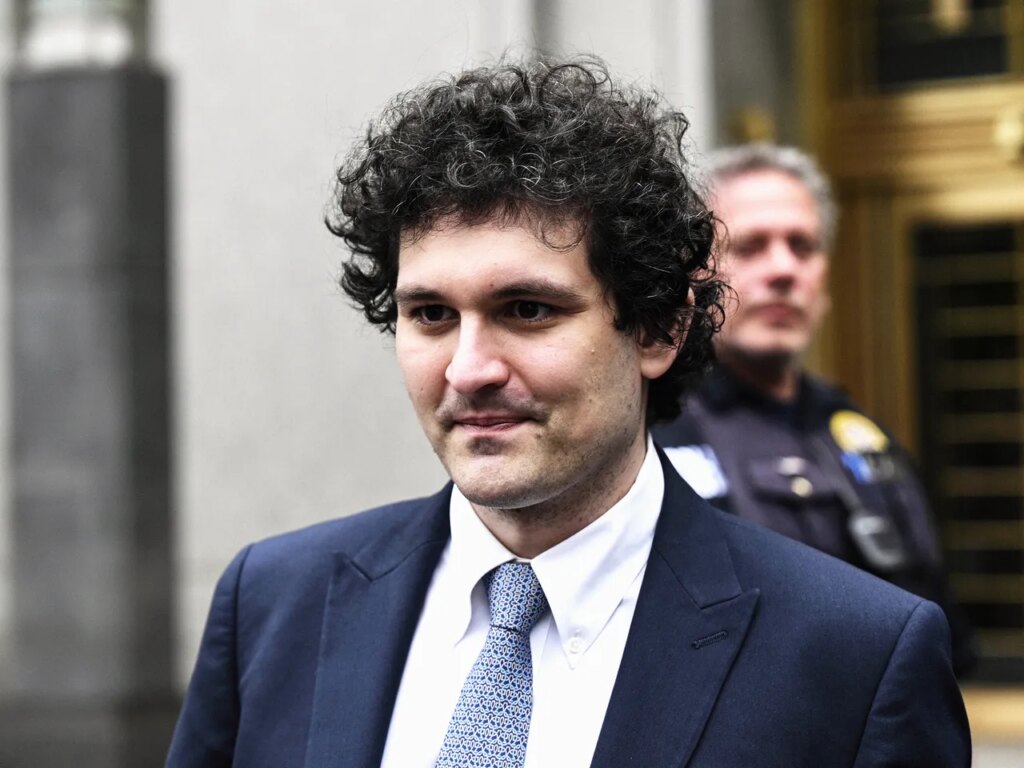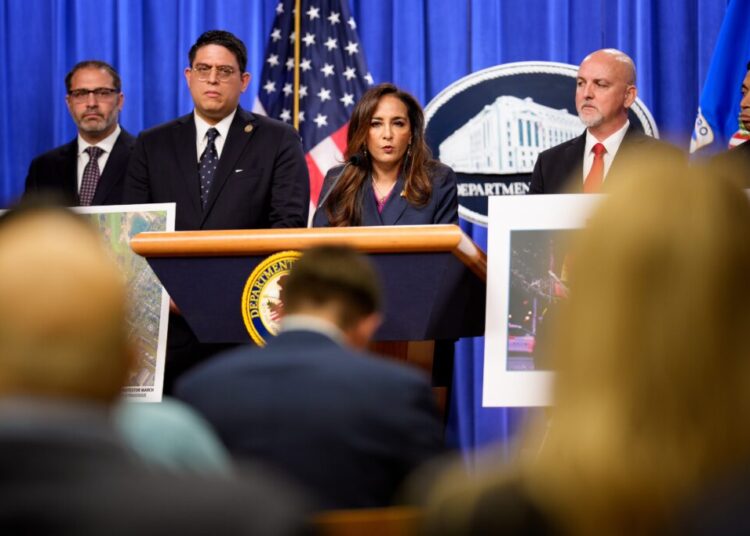On September 23, for the first time in more than six months, an X account belonging to disgraced FTX founder Sam Bankman-Fried published a post. It simply read, “gm”—internet slang for “good morning.” The account has been posting consistently since.
Bankman-Fried—known widely as SBF—is currently serving a 25-year prison sentence in California. In November 2023, he was found guilty of seven counts of fraud and conspiracy by a jury in the Southern District of New York over his role in the collapse of the crypto exchange FTX.
Immediately after his sentencing, Bankman-Fried signaled his intention to appeal. In spring, he spoke to a handful of reporters from prison. But otherwise, he has largely receded from public view. Distracted by the arrival of US bitcoin exchange-traded funds, a memecoin goldrush, talk of national bitcoin reserves, and the prospect of an easy ride under US president Donald Trump, the crypto industry moved on too.
However, since September, Bankman-Fried’s X account has been causing a stir. (Though Bankman-Fried does not have access to the internet in prison, a friend is supposedly posting on his behalf.) The posts lob criticism at the administrators of the FTX bankruptcy estate and focus on alleged misconceptions about the condition of FTX’s finances when it fell; they claim that the money was never missing, only stuck in illiquid assets. From prison, Bankman-Fried has also been sitting for interviews with media outlet Mother Jones, published in October, during which he largely promoted the same perspective.
His mother, the legal professor Barbara Fried, recently launched a Substack. Her first and only post, published in late October, is a 65-page treatise entitled “The Trial of Sam Bankman-Fried,” in which she makes the case that her son neither committed a fraud nor received a fair trial.
(Bankman-Fried’s representatives confirmed that Barbara Fried authored the Substack paper; they said they had no information about the X posts. They did not respond to a further request for comment.)
Bankman-Fried’s reemergence appears to reflect a two-pronged approach to securing his release from prison. In the courts, Bankman-Fried is pursuing a formal appeal; elsewhere, he is appealing to public sympathy.
The prevailing sentiment towards Bankman-Fried will have no bearing on the appeal case, former prosecutors claim. But it could influence his reported campaign to secure a presidential pardon from Trump, who has absolved various crypto figureheads since returning to the White House in January.
“It’s a PR campaign, obviously,” claims Joshua Naftalis, a former prosecutor, now a partner at law firm Pallas Partners. “It’s a no stone left unturned strategy.”
To date, Bankman-Fried has not filed a formal pardon application, a White House spokesperson tells WIRED. “We do not discuss speculation about sensitive issues, such as pardons, on-record,” the spokesperson says.
Bankman-Fried’s appeal case hinges on the claim that the trial jury “was only allowed to see half the picture,” because of rulings by the judge, Lewis Kaplan, that blocked the defense from introducing evidence that allegedly would have helped to undercut the prosecution’s case.
“At every turn, the judge put his thumb on the scale,” Bankman-Fried’s counsel wrote in an appellate brief in January. “The result was a one-sided trial, where the district court allowed the government to present damning false information, concealing contrary information from the jury, erroneously instructed the jury about the law, and effectively directed a guilty verdict.”
On November 4, one of Bankman-Fried’s lawyers, Alexandra Shapiro—who is simultaneously handling the appeal cases of Sean ‘Diddy’ Combs and entrepreneur Charlie Javice—presented those arguments to a panel of judges at the Second Circuit Court of Appeals. The judges reportedly appeared skeptical of the idea that Bankman-Fried did not receive a fair trial. “It almost seems like you’re spending more ink on Judge Kaplan than on the merits,” one of them told Shapiro.
“I’m sure they didn’t take lightly the prospect of criticizing Kaplan’s exercise of discretion,” says Daniel Richman, a law professor at Columbia University, who previously served as a federal prosecutor. “But I think they made the professional judgement that that was one of the few roads worth taking.”
Both Naftalis and Richman caution against trying to divine the outcome of an appeal based on comments made by judges at oral arguments. However, the odds of a criminal appeal succeeding are low, in general—somewhere between five and 10 percent. And Bankman-Fried’s specific arguments, concerning matters of judicial discretion, are particularly difficult to land.
“I’d be surprised if it was overturned,” says Christopher LaVigne, a partner at law firm Withers.
The court could publish its decision at any moment. After oral arguments, judges can take anywhere from a month to multiple years to return a decision, former prosecutors say.
At trial, a witness testified that Bankman-Fried said he’d risk the destruction of the world on a coin flip, if the second option was that humanity would become twice as well off. It’s no surprise that he appears to be hedging his bets.
Since returning to the White House in January, Trump has pardoned a host of crypto figureheads convicted of white collar offenses, including Changpeng Zhao, the multibillionaire founder of Binance. Trump told reporters that he had wiped Zhao’s criminal record on the advice of “very good people,” who had told him that the Binance founder was victimized by the crypto-hostile Biden administration and hadn’t committed a crime. (In 2023, Zhao pled guilty to failing to maintain an effective money laundering program at Binance, which is a crime.)
Bankman-Fried’s family ramped up efforts to lobby for a pardon in the spring, according to The New York Times. His camp reportedly believes that Trump, who has repeatedly said he considers himself a victim of lawfare, could prove sympathetic to the idea that Bankman-Fried has been miscast by prosecutors as an arch criminal.
The recent posts to Bankman-Fried’s X account, his interviews with Mother Jones, and Fried’s Substack post all support that proposition. They maintain Bankman-Fried’s innocence and shift the blame for FTX’s collapse and the immense losses incurred by customers onto allegedly avaricious legal professionals, who stood to benefit financially from a premature bankruptcy filing.
“The professional fees were reviewed by an independent examiner and approved by the court,” says Maggie Carangelo, a spokesperson for the FTX estate.
In that regard, in an unlikely twist, Bankman-Fried’s publicity onslaught aligns him with a group of former FTX customers—the victims of the crimes he was found to have committed—who have railed against the strategy pursued by the administrators of the FTX estate, which they claim has resulted in a lesser return for creditors.
(“The FTX estate managed its Chapter 11 case in a transparent, public process that was supervised by the US bankruptcy court, reviewed by an independent examiner, and had the full support of the official creditors committee,” says Carangelo. “Its plan of reorganization received the approval of more than 95 percent of creditors who submitted votes, representing 99 percent of voted claims by value.”)
“He’s still a criminal,” says Sunil Kavuri, a creditor who lost $2 million to the collapse of FTX and delivered a statement condemning Bankman-Fried at his sentencing. “It’s very easy to push blame onto someone else, but he got us into this mess.”
The argument that FTX was solvent and control of the company was wrested from Bankman-Fried by lawyers now representing the bankruptcy estate is irrelevant to his legal appeal, claims Richman. However, if those claims ring true at the White House, it might not matter. “It depends on the extent to which one thinks Trump’s pardoning process has any connection to the merits of cases,” claims Richman.
Either way, Bankman-Fried’s maneuvring was foreshadowed in a court filing in March 2024, in which prosecutors called for a lengthy prison sentence. The filing pointed to a document compiled by Bankman-Fried immediately after FTX filed for bankruptcy, in which he cooked up different strategies for repairing his public image. The third option was to, “go on Tucker Carlsen, come out as republican [sic].”
In early 2025, from prison, Bankman-Fried sat for that interview with Carlson, a long-time Trump ally. “I don’t think I was a criminal,” he said.
The post Sam Bankman-Fried Goes on the Offensive appeared first on Wired.




